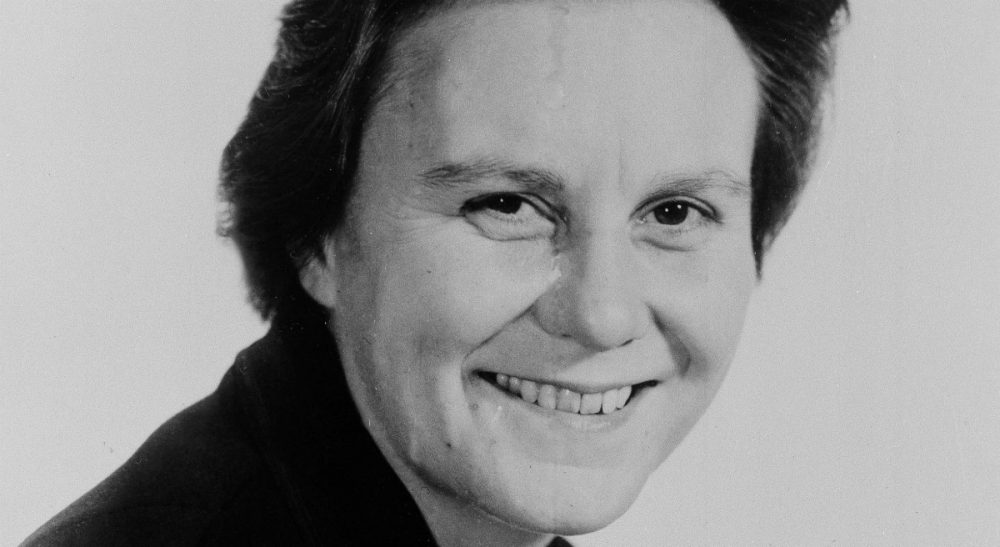Advertisement
The Radical Acts And Absences Of Harper Lee

Now that Harper Lee has died, the great forensic investigation into her life will begin. The notoriously reclusive writer, who published only two books over half a century apart, will be dissected for some deeper meaning that will have supposedly lived, sight unseen, within her masterpiece, "To Kill a Mockingbird." It will be her parting gift to the literary community she hid from, an endowment to the careers of scholars, critics, and authors, who will casually fuse what they discover in her dresser drawers to the great tale that continues to reach millions of readers. Her silence will be embalmed with meaning, and we will be enticed to overlook the likely reason for it all, which is that she had already written what she had to say.
Everyone always wanted more about Harper Lee from Harper Lee, and that demand has seemed ungracious at best, when one considers how much she risked by publishing "To Kill a Mockingbird" in the first place. Take back the smooth, Hollywood film adaptation with a handsome, regal Gregory Peck at the fore. Take back the near-posthumous release of her flawed, strange, tale of little-girl Scout grown up. That slim little fable, which hit the shelves in 1960, was once a new book, alone on the shelves, written by a young white woman in a deeply racist and mysoginist country. It was a radical act. It was a potent, almost biblical truth, delivered to a willfully blind and actively hateful, segregated America.
Now that Harper Lee has died ... her silence will be embalmed with meaning, and we will be enticed to overlook the likely reason for it all, which is that she had already written what she had to say.
Certainly, to African American authors and readers, the book could have seemed quaint to the point of offense. It appears to dance around the evident truth of injustice that authors like James Baldwin were lighting ablaze with searing eloquence. But Lee was not speaking to African Americans. Instead, she was speaking to white America, to her own people. What she said, without any guarantee of safety or success, placed her alone in a chasm between American realities, between oppressors and the oppressed, trying to conjure an ideal outcome to a story that never ended so well outside of a book.
Few authors have ever appealed so persuasively, without humor, to an audience whose kith and kin are the antagonists in their book. Lee called out readers’ vulnerabilities, their cowardice, and their hatred. She questioned the value of the town square, challenging the white American ideal that democracy is a backstop that naturally prevents us from indulging in our worst impulses. She said that its blessings were not retroactive. Our sins would not be absolved.

In Scout and her father, Atticus Finch, we were presented with the innocence of childhood and the nobility of a good adult. Lee implied that we had all once been Scout, hinted that we now believed we were Atticus, and then suggested that we were actually part of the faceless mob waiting with pitchforks and torches. The inherent innocence of our children was her vehicle, delivered during a time of fear and retribution. Then as today, the consequences of telling this kind of story were real. To deny the risk she took would be to act like the characters in the book who desperately try to believe that we are not capable of being “those kinds of people.”
Ask someone about Mark Twain’s books and they’ll talk to you about Twain. But ask someone about Harper Lee and they’ll talk to you about how her masterpiece affected them.
As radical an act as writing the book and releasing it, Lee’s refusal to elaborate was equally profound. It denied readers a chance at misdirection away from the sickening mixture of civility and barbarism she portrayed. Ask someone about Hemingway’s books and they’ll invariably talk to you about Hemingway. Ask someone about Mark Twain’s books and they’ll talk to you about Twain. But ask someone about Harper Lee and they’ll talk to you about how her masterpiece affected them. They’ll tell you how it made them feel. How it changed them.
I will not be at my local bookstore when Lee’s letters are released. I will ignore the revelatory biography that tells us all, once and for all, that Scout really was Harper Lee. I will pass on the opportunity to gasp when they find some mention of her using a slur or an epithet in some crumpled up note beneath her basement steps. I will spare myself future disappointment in the handlers of her estate. Instead, as I reflect on the passing of Harper Lee, I am reminded of how often I turn to her book and the questions it has always asked of me. Am I on the side of right? Are we, as a people, on the side of right? Is this a tale of our past, or is it a tale of our present? Have we really changed? Can we create, in how we live, a world that chooses justice?
